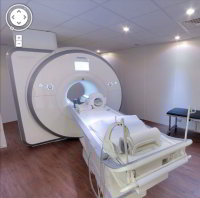Autologous Cartilage Transplant - Effectivenness in Healing Osteoarthitis of the Knee
Effectiveness of Cartilage Transplant
- Immediate and lasting pain reduction
- Restoration of resilience
- Improved agility
- Reconstruction of the cartilage layer using new cartilage through a natural process
- Prevention of or delay in the need for joint replacement
Evidence
Clinical Study about the effectiveness of the arthroscopic cartilage transplant
Cartilage surfaces in joints, like every other connective tissue in our body, become less functional as we get older. This is what causes the wrinkles in out skin as we age. Osteoarthritis is a premature and accelerated decay of cartilage caused by infection, trauma or a structural problem of the joint. A procedure such as cartilage transplant is considered a successs, if the rate of degeneration of the cartilage is brought back in line with what we would expect for the age of the patient (the normal ageing process). The procedure provides pain relief, while at the same time slowing down the progress of damage and often considerably delaying the need for partial or total knee replacement surgery. Most importantly cartilage repair treatments help patients to return to their former lifestyle, regaining mobility, going back to work and practicing sports again.
Clinical Study on Autologous Cartilage Transplant - evaluating the effectiveness of cartilage transplant in the knee
The founder of the Gelenk-Klinik participated in a long term followup study of 42 of his patients who had cartilage cell transplantation as an arthroscopic procedure. None of the patients experienced problems as a result of the procedure. All reported significant improvements in pain reduction, reduction of stiffness and increased knee function at both the MRI follow up at one year and the clinical examination after two years.



 Prof. Dr. med. Sven Ostermeier, Consultant for Orthopaedic Knee Surgery
Prof. Dr. med. Sven Ostermeier, Consultant for Orthopaedic Knee Surgery

